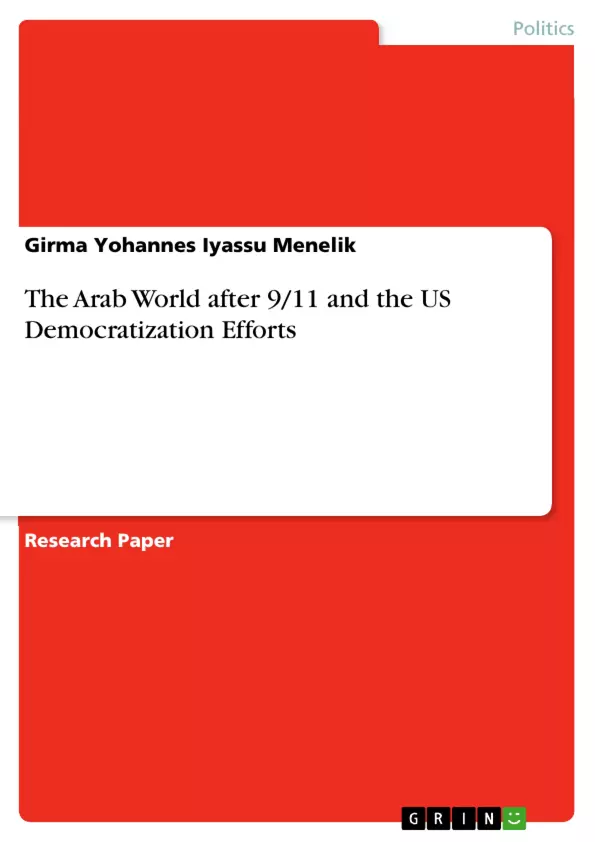The alleged Al Qaeda attacks of November 9, 2001, have dramatically distorted the political environment between the Muslim and the Western world. Muslims live in a vast and diverse region that stretches from West Africa to the southern Philippines, as well as Muslim communities and Diaspora, scattered throughout the world. In the Muslim world, religion, politics, and culture are intertwined in complicated ways. This chapter is dedicated to dig-out and examine the dynamics that are driving changes in the political-religious landscape of the Muslim world, and to provide the global policymakers, the broader academic and security circle, with a general outline of events and recent trends, in the Islamic militia, that are most likely to affect U.S. interests and global security.
In thus chapter, we can have an insight which ideological zeal Muslims in the Middle East and somewhere else seem to follow. They differ significantly not only in their religious views but also in their political and social orientation, in particular, women’s rights and the content of education and their tendency for violence. Based on such political and religious analysis an exploration will be undertaken within the two main streams of Islam, first and foremost those between the Sunni and Shiia branches and between the Arab and the non-Arab Muslims straight ait down to sub-national communities, tribes, and clans
However, after 9/11, the Bush Administration along with a bundle of strategies came out and advocated to democratize the Arab world. The main strategy and rationale behind the US government security interest in promoting freedom and democracy is to reduce anti-American terrorism. According to their calculus, the more democracy promoted in the Middle East the less terrorist attack on the US targets take place.
Policy designers of the US government might like the idea and would like to think from the American point of view that democracy in Arabia works as in the United States. Unfortunately, there’s no evidence for it and therefore, such a kind of decision making is basically wrong. In contrast, it is highly advisable to stop encouraging (and exporting) American democracy in Arabia and the Middle East.
Inhaltsverzeichnis (Table of Contents)
- I. The Muslim World after 9/11 -The Middle East
- I.1. Terrorism in the North West African Regions
- I.2. The New Terrorism in the Sahel Region
- I.3. Al Qaeda-GSPC Alliance
- I.4. Fundraising through Crimes
- I.5. GSPC and Al-Qaeda International Networks
- II. US democratization Efforts in the Islamic World
Zielsetzung und Themenschwerpunkte (Objectives and Key Themes)
This text aims to examine the dynamics that are driving changes in the political-religious landscape of the Muslim world, providing a general overview of events and recent trends in Islamic militias, which are most likely to affect US interests and global security. The text will particularly focus on the impact of the 9/11 attacks on the Muslim world, including the rise of Islamic extremism and the role of the US in promoting democratization in the region.
- The impact of the 9/11 attacks on the Muslim world
- The rise of Islamic extremism and terrorism
- The role of the US in promoting democratization in the Muslim world
- The complexities of sectarian tensions within Islam
- The role of tribal politics in the Muslim world
Zusammenfassung der Kapitel (Chapter Summaries)
The first chapter explores the changing political-religious landscape of the Muslim world post-9/11, particularly focusing on the dynamics in the Middle East. It examines the rise of terrorism in North West Africa, the Sahel region, and the alliances formed between groups like Al-Qaeda and GSPC. The chapter also discusses the financing of extremist groups through criminal activities and the role of international networks.
Schlüsselwörter (Keywords)
Key terms and concepts addressed in this text include: Islamic extremism, terrorism, democratization efforts, sectarian tensions, tribal politics, US foreign policy, the Middle East, Al-Qaeda, GSPC, and the Muslim world.
Frequently Asked Questions
How did 9/11 change the political landscape of the Muslim world?
The attacks dramatically distorted relations between the Muslim and Western worlds, intertwining religion, politics, and culture in complex ways and leading to increased scrutiny of Islamic militias.
What was the goal of US democratization efforts after 9/11?
The Bush Administration aimed to promote democracy in the Middle East as a strategy to reduce anti-American terrorism, believing that free societies are less likely to produce terrorists.
Why is the export of American democracy to the Arab world criticized?
Critics argue there is no evidence that Western-style democracy works the same way in Arab cultures and that imposing it can be a flawed policy decision.
What are the main sectarian tensions mentioned?
The text explores the divide between Sunni and Shiia branches of Islam, as well as tensions between Arab and non-Arab Muslims and various sub-national tribes.
How do extremist groups like GSPC fund their activities?
Many extremist organizations in regions like North West Africa and the Sahel use criminal activities for fundraising to support their international networks.
- Quote paper
- Professor. Dr. Girma Yohannes Iyassu Menelik (Author), 2007, The Arab World after 9/11 and the US Democratization Efforts, Munich, GRIN Verlag, https://www.grin.com/document/135974



